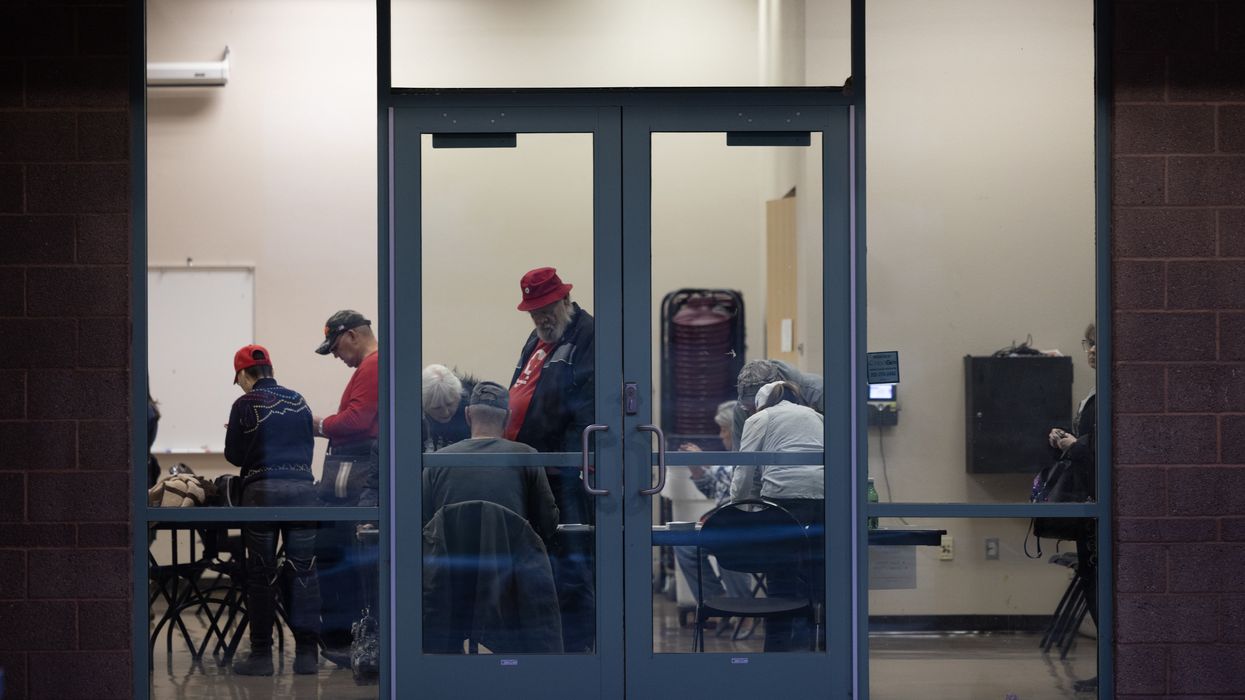Fisher is senior director of policy and partnerships for Unite America. Macomber is research manager for UA.
Last week, Nevada voters went to the polls to cast ballots in the state’s presidential primaries — well, those voters who were allowed to, at least.
Because Nevada holds “closed” primaries for all offices, only voters registered with the Democratic or Republican parties can participate in the state’s taxpayer-funded primary elections. Independent and minor-party voters are left out. More than 777,000 of the state’s active registered voters (40 percent of the total) are not registered with a major party and, therefore, cannot vote in primaries.
In a new report we co-authored for the Unite America Institute, we unearthed the scale of the problem facing independent voters and the impact of closed primaries. As part of the project, Change Research conducted a first-of-its-kind poll of 2,224 registered independents from 20 states with closed presidential primaries or caucuses (we call these voters “Excluded Independents”).
First, Nevada is far from alone in leaving out independents: 22 states hold closed presidential primaries or caucuses. In these states, over 27 million voters who are not registered with a major party lack the right to participate in the presidential nominating process. They represent nearly 29 percent of all voters in these states, a share that is 20 percent larger than it was in 2010. Fifteen states also hold closed primaries for congressional and state offices, preventing 17.5 million voters from participating.
To make matters worse, the vast majority of congressional districts are “safe” for either the Democrats or the Republicans (currently about 90 percent are safe, according to the Cook Political Report). Primary elections therefore effectively determine who will represent those districts. As a result, tax-paying independent voters lack any voice in who represents them.
The polling results demonstrated that independent voters find their exclusion to be unfair, and that these voters have strong opinions about the current political environment.
Both younger generations and those who served the country are disproportionately forced to the sidelines of our democracy. Nearly 60 percent of Excluded Independents are under 50, compared to just 18 percent who are over 65. And 16 percent of Excluded Independents are veterans, even though just 6 percent of all American adults have served in the military.
Excluded Independents are also “independent thinkers” who hold diverse views that do not align with either the Democratic or Republican party platforms. For instance, 70 percent said they “prefer to assess each candidate individually, rather than by their party affiliation,” while the same percentage acknowledged that they agree with Democrats on some issues and Republicans on others.
Specifically, majorities of Excluded Independents have more trust in the Democrats to address issues like education, health care and climate change, but they have more trust in the Republicans to handle immigration, the economy and public safety.
Asked to describe why they register as independents, Excluded Independents shared a variety of responses, including:
- “Too many issues go unresolved because politicians are more interested in maintaining party allegiance than representing the people.” – 41-year old woman and veteran from Arizona
- “I'm an independent thinker and willing to vote for anyone who reflects my beliefs.” – 68-year-old man from Nevada
- “I share many beliefs with both parties and [have] many beliefs that neither party holds.”
– 34-year-old woman from Idaho
Unsurprisingly, independent voters do not like elections they cannot vote in. Over three-quarters find it unfair that they cannot participate in taxpayer-funded partisan primaries, and 82 percent want to be able to vote in Democratic or Republican presidential primaries. An even larger share, 87 percent, support opening primaries to independent voters, as 35 states have already done. Colorado and Maine were the most recent states to do so in 2016 and 2021, respectively. New Mexico and Pennsylvania independents may be next to gain access to the primary franchise, as advocacy campaigns are underway in their states.
Excluded independents also overwhelmingly support primary reform. More than 80 percent support nonpartisan primaries, allowing all candidates to compete on the same primary ballot open to all voters. Nevada voters have the chance this year to correct the ill of closed primaries. If “final-five voting” is approved this fall, the aforementioned 770,370 voters will be able to vote in taxpayer-funded elections for state and congressional offices.
At a time when both of the major parties’ leading presidential candidates struggle to keep their national favorability ratings above 40 percent, it makes sense to allow all voters to have a say in who will win the major party nominations.
Voting is a cherished civic right, but 27 million registered voters cannot fully exercise the franchise. By remedying this injustice for those who have declared their political independence, the country will have a more functional government better representing the country’s views.



















Trump & Hegseth gave Mark Kelly a huge 2028 gift